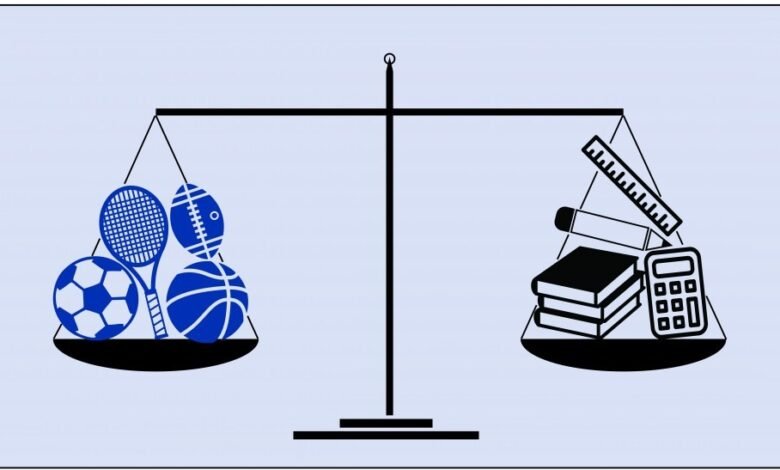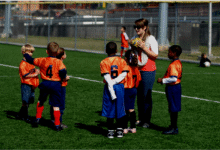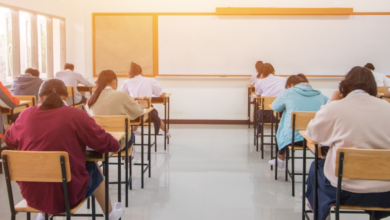Balancing Education and Sports: Time Management Tips for Students
Balancing Education and Sports requires time management, discipline, & focus. Learn essential tips to excel academically and athletically with ease.

Balancing Education and Sports is a challenge many students face, but with the right time management strategies, it’s entirely achievable. Academic success and athletic excellence often seem like competing priorities, but they can complement each other when approached with discipline and planning. For student-athletes, excelling on the field and in the classroom requires a well-structured routine, focus, and a proactive mindset.
The benefits of balancing education and sports go beyond grades and trophies. Sports help in building teamwork, resilience, and discipline, while academics foster critical thinking and problem-solving skills. By integrating these aspects harmoniously, students can achieve holistic growth. This guide explores practical time management tips to help students excel in both education and sports without compromising on either.
Read More: Balancing Education and Sports
Understanding the Importance of Balancing Education and Sports
Balancing Education and Sports teaches students the value of discipline, time management, and prioritization in achieving personal and professional goals.
Students who effectively balance academics and sports often develop essential life skills like multitasking, resilience, and adaptability. Education provides the intellectual foundation, while sports instill physical fitness and teamwork. Together, they prepare students for a well-rounded future. By recognizing the importance of balance, students can harness the best of both worlds, ensuring long-term success.
Setting Clear Priorities for Academics and Athletics
Setting priorities is crucial for successfully balancing education and sports while meeting academic and athletic commitments.
Students need to identify their short-term and long-term goals in both fields. For instance, prioritizing study sessions before a big game ensures academic progress without neglecting sports practice. By maintaining a clear understanding of what matters most at any given time, students can stay focused and manage their responsibilities effectively.
Creating a Structured Daily Schedule
A structured schedule is the backbone of balancing education and sports, allowing students to allocate time effectively for both.
Designating specific hours for classes, study, practice, and relaxation ensures nothing is overlooked. Tools like planners, calendars, or digital apps can help track assignments, training sessions, and deadlines. A structured schedule not only reduces stress but also maximizes productivity.
Effective Time Management Techniques for Student-Athletes
Mastering time management is critical for balancing education and sports, ensuring equal attention to academics and athletics.
Techniques like the Pomodoro Technique, where study sessions are broken into focused intervals with breaks, can help. Similarly, combining smaller tasks or using downtime productively—for instance, reviewing notes during travel—can optimize the daily routine. These strategies allow students to make the most of their limited time.
The Role of Self-Discipline in Achieving Balance
Self-discipline is essential for students balancing education and sports, as it helps them stick to their schedules and commitments.
Avoiding procrastination, limiting distractions, and staying consistent with routines require self-control. Students who practice self-discipline are better equipped to manage the demands of schoolwork and sports training, ensuring success in both areas.
Communicating with Teachers and Coaches
Open communication with teachers and coaches is vital for balancing education and sports successfully.
Teachers can offer extensions or academic support when necessary, while coaches can adjust training schedules during exam periods. Building strong relationships with mentors ensures students receive the guidance and flexibility needed to excel in both fields.
Staying Organized with Study Materials and Sports Gear
Organization is a key aspect of balancing education and sports, ensuring students are always prepared for both.
Keeping academic materials and sports equipment in order minimizes last-minute chaos. Dedicated spaces for school supplies and gear help maintain efficiency, allowing students to transition seamlessly between academic and athletic commitments.
Leveraging Support Systems for Academic and Athletic Success
Support systems, including family, friends, and mentors, are invaluable for students balancing education and sports.
Parents can help manage schedules, while peers can provide moral support. Engaging with teammates, study groups, or school counselors fosters a sense of community, making it easier to navigate challenges in both areas.
Maintaining Physical and Mental Health
Prioritizing physical and mental health is critical for balancing education and sports without experiencing burnout.
Adequate sleep, proper nutrition, and regular relaxation techniques like meditation ensure students remain energized and focused. Mental well-being is equally important, as a calm mind improves academic performance and athletic outcomes.
Maximizing Productivity During Downtime
Utilizing downtime effectively is a valuable strategy for balancing education and sports.
Students can review notes, complete assignments, or engage in light training during free periods. Turning idle moments into productive ones allows students to stay ahead in both academics and athletics.
Setting Realistic Goals for Academic and Athletic Growth
Realistic goal-setting is crucial for students balancing education and sports to avoid unnecessary stress or disappointment.
Setting achievable milestones—like maintaining a specific GPA while improving athletic performance—ensures steady progress in both areas. Clear goals motivate students to stay focused and work diligently.
The Role of Technology in Time Management
Technology plays a significant role in helping students balance education and sports through apps and digital tools.
Calendar apps, task managers, and fitness trackers streamline schedules, helping students manage their responsibilities efficiently. By leveraging technology, students can stay organized and meet deadlines effortlessly.
Adapting to Changing Schedules
Flexibility is essential for balancing education and sports, as schedules can change due to exams or tournaments.
Students must learn to adapt by re-prioritizing tasks and finding alternative study or practice times. This adaptability ensures that neither academics nor sports are neglected during busy periods.
Avoiding Burnout Through Regular Breaks
Regular breaks are necessary for students balancing education and sports to avoid physical and mental exhaustion.
Short breaks during study or training sessions rejuvenate the mind and body. Longer breaks, such as a weekend off, help students recharge, improving focus and performance in both areas.
Building Confidence Through Balanced Achievements
Balancing education and sports boosts confidence as students achieve success in multiple areas of their lives.
Excelling academically and athletically instills a sense of pride, motivating students to tackle challenges with determination. This balanced growth fosters self-esteem and resilience.
Learning from Setbacks in Academics and Sports
Setbacks are inevitable, but they provide valuable lessons for students balancing education and sports.
Whether it’s a poor exam result or a loss in a game, these experiences teach perseverance and adaptability. Learning to overcome failures strengthens students’ resolve, helping them grow in both academics and athletics.
Time Management Lessons from Sports Training
Sports training offers time management lessons that students can apply to academics.
Practices often emphasize discipline, punctuality, and efficiency. By incorporating these principles into their study routines, students can improve their academic performance while excelling athletically.
The Role of Coaches in Academic Motivation
Coaches play an important role in motivating students to balance education and sports effectively.
Encouraging academic excellence alongside athletic performance fosters a well-rounded development. Coaches who emphasize the importance of education inspire students to strive for success in both arenas.
Celebrating Small Wins in Academics and Sports
Acknowledging small achievements is vital for maintaining motivation when balancing education and sports.
Whether it’s acing a quiz or scoring in a match, celebrating milestones boosts morale and encourages continued effort. These celebrations create a positive cycle of progress.
Striving for Long-Term Balance and Growth
Long-term balance is the ultimate goal for students balancing education and sports, ensuring sustainable growth in both areas.
Developing habits like consistency, organization, and self-discipline lays the foundation for lifelong success. By focusing on holistic development, students can achieve their full potential academically and athletically.
Read More: Balancing Education and Sports
Conclusion
Balancing education and sports is a rewarding challenge that equips students with essential life skills. From effective time management and goal-setting to maintaining physical and mental health, achieving this balance requires dedication and strategic planning. Students who master this art excel not only in their studies and sports but also in personal growth and future endeavors.
With the right support systems, self-discipline, and proactive strategies, students can harmonize academics and athletics seamlessly. This balance fosters resilience, confidence, and holistic development, paving the way for success both on and off the field.
FAQs
1. How can students effectively balance education and sports?
By creating structured schedules, setting clear priorities, and practicing time management, students can excel in both areas.
2. Why is balancing education and sports important?
It fosters holistic development, teaching discipline, resilience, and teamwork while ensuring academic and athletic success.
3. How can technology assist in balancing education and sports?
Apps and digital tools help students manage schedules, track tasks, and maintain productivity efficiently.
4. What role do coaches play in achieving balance?
Coaches encourage students to prioritize academics alongside athletics, promoting a well-rounded approach to success.
5. How can students avoid burnout while balancing both?
Regular breaks, proper nutrition, and a healthy routine prevent physical and mental exhaustion, ensuring sustained performance.







